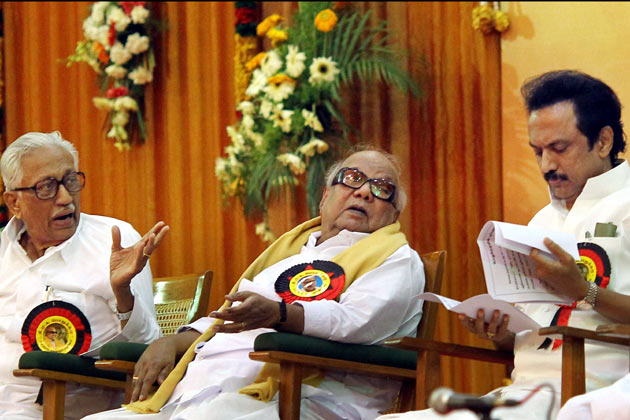
Chennai, July 4: DMK's top leaders M Kanimozhi, Dayanidhi Maran and MK Stalin along with several party cadres on Wednesday courted arrest in Chennai during the party's state-wide jail bharo agitation against alleged witch-hunt by the Tamil Nadu government of J Jayalalithaa.
At least 15 DMK leaders and former ministers have been raided or arrested on land-grabbing and other charges since Jayalalithaa came to power in Tamil Nadu in 2011.
The DMK is organising a jail bharo agitation across Tamil Nadu. DMK President and former Tamil Nadu chief minister M Karunanidhi had earlier reminded party cadres to abide by the party's credo of non-violence during the agitation.
The cases against DMK leaders:
Land grabbing cases:
DMK MLA Soundarapandian arrested on August 27, 2011.
Former minister NKKP Raja arrested on August 4, 2011.
Former minister VS Arumugam arrested on July 30, 2011.
DMK MLA J Anbazhagan arrested on July 30, 2011.
Illegal assets cases:
DMK chief and former Tamil Nadu chief minister M Karunanidhi's three personal security officers raided on March 2, 2012.
Former DMK minister Thangam Thennarasu raided on February 15, 2012.
Former ministers KR Periakaruppan, A Tamilarasi raided on February 10, 2012.
DMK's former law minister Durai Murugan raided on November 24, 2011.
Former DMK minister K Ponmudi raided on September 27, 2011.
Other cases:
KN Nehru jailed on September 16, 2011 Sept: for hoarding money for distribution during polls.
Former minister KPP Samy arrested on murder charges on September 24, 2011.




Comments
Add new comment